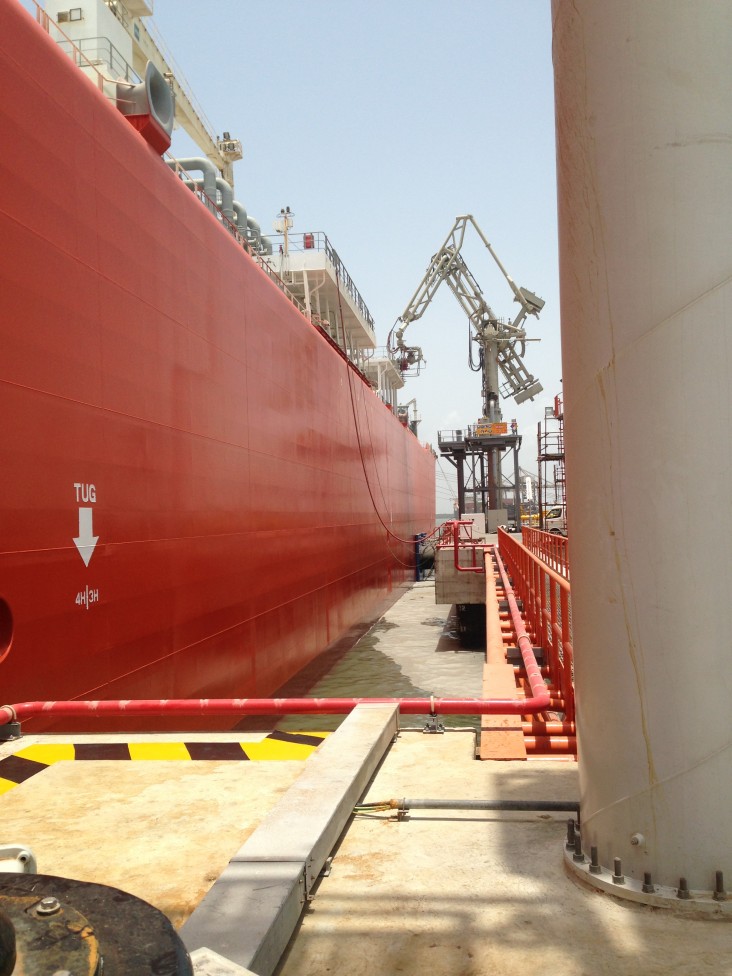
Natural gas constitutes nearly half of Pakistan’s primary energy supplies and is critical to the sustainability and growth of Pakistan’s power sector. Despite recent discoveries in northern Pakistan, production from existing gas fields is on the decline and gas shortages threaten to seriously impact economic growth targets. A short-term approach to closing this energy gap began in 2013 under USAID’s Energy Policy Program to facilitate imports of Liquefied Natural Gas (LNG) from interna-tional markets, which could be realized within a shorter time frame of 1.5 – 2 years.
USAID supported Pakistan in the construction and operation of a “fast-track” LNG terminal at Port Qasim, Karachi, which was successfully commissioned in March 2015. USAID assistance helped finalize a number of agreements between stakeholders, helped in the monitoring and commissioning of the LNG terminal, and in pilot training terminal boat operators.
Simultaneously, USAID provided specialized international commercial and legal support in LNG procurements under long-term agreements and tender processes for short-term spot pur-chases. Pakistan’s state oil company is successfully purchasing LNG and has been importing spot shipments of LNG from in-ternational suppliers since April 2015. In February 2016, a fifteen-year agreement with Qatar Gas was executed, guaranteeing long-term, reliable, cheap natural gas shipments to Pakistan.
With the support of USAID, the first LNG terminal in Pakistan has been established, and LNG import contracts have been ex-ecuted with international suppliers. Pakistan and its energy consumers are now on the global map for LNG, and cheaper, dependable natural gas is flowing in the national pipeline network. Pakistan is now well-positioned to purchase additional energy supplies and establish new LNG terminals to further im-port gas to the people of Pakistan.







Comment
Make a general inquiry or suggest an improvement.